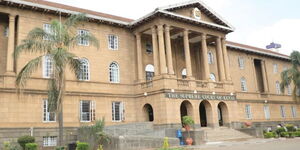The Ethics and Anti-Corruption Commission (EACC) has flagged Human Resource Management as the most corrupt department in public service.
While making a presentation on behalf of EACC Chief Executive Twalib Mbarak at the 27th Annual National Conference for Human Resource Management (HRM) practitioners, the Commission’s Deputy Director in charge of Ethics Compliance, Patrick Owiny also cited financial management, public procurement, and project implementation as other high-risk areas.
"Corruption in HRM has a direct adverse effect on institutional performance and is a major contributor to accountability shortfalls in the public service. Notably, human capital is the most valued asset in any organization because even with new technological advancements, the role of the human interface remains critical," EACC said in a statement.
"Corruption, if not prevented, can be entrenched and institutionalized in the procedures, systems, and policies of an organization thus hindering institutional growth and stability," the anti-graft agency further observed.
According to EACC, the Human Resource sub-fields where corruption is most prevalent include; Human Resource Planning, Payroll Management Recruitment and Selection, Placement, Deployment, and Transfers, Training and Development, Performance Management, Management of Career Progression, and Compensation of Staff.
The anti-graft body further revealed that its investigations had revealed major forms of corruption and unethical practices in HRM functions, especially county governments.
These include; Irregular Extension of Contracts, Retention of Retired Employees in the Payroll, Nepotism, and Favoritism.
Other outlined forms of corruption include; Conflict of Interest, Double Employment, Unlawful Recruitment, Skewed Advertisements, Skewed Criteria for Recruitment, and Leakage of Confidential Information.
Bribery in Recruitment, Payments for Work Not Done, the Existence of Ghost Workers, Total Disregard of Employment Procedures, Forgery of Academic Certificates, Tampering with HR records, and Abuse of Office were also listed as other prevalent forms of corruption.
The Commission further noted it had received about 324 reports on irregular employment of which, 204 are under investigation while 46 have been referred to various organisations for action.
EACC also noted that it is currently handling about 172 cases on the falsification of academic documents.
"The fact that the country is witnessing an upsurge in cases of unqualified persons masquerading as professionals in diverse fields should raise an alarm to various professional bodies," the commission noted.












